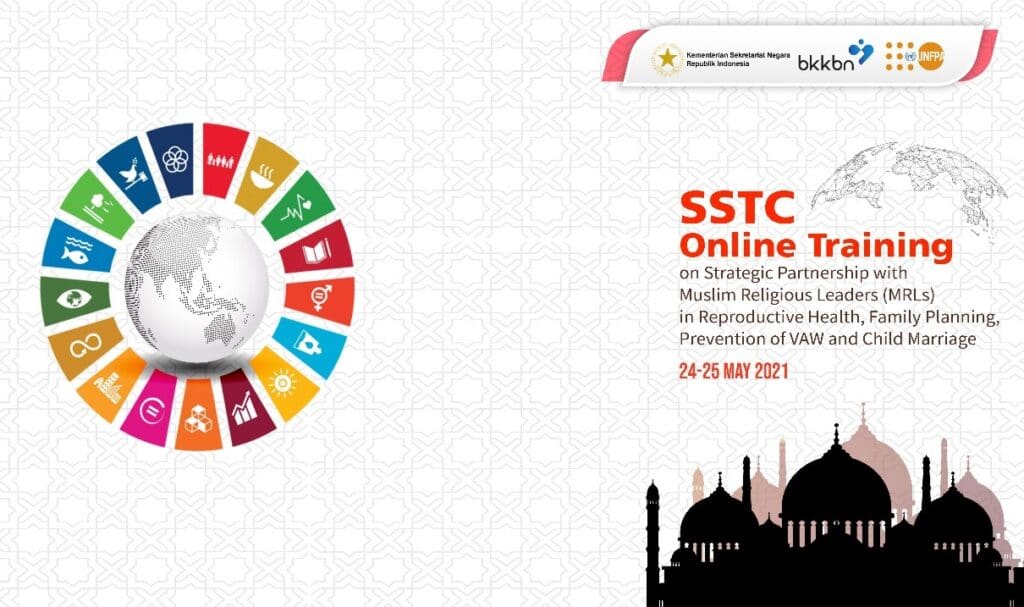
Jakarta – The National Population and Family Planning Board (BKKBN) collaborate with the Ministry of State Secretariat, and the United Nations Populations Fund (UNFPA) held an international training activity with the theme “Strategic Partnership with Muslim Religious Leaders (MRLs) in Reproductive Health, Family Planning, Prevention of Violence Against Women, Child Marriage, and Stunting Reduction”. The training activities were conducted online and officially opened by the Deputy for Training, Research, and Development of the BKKBN, Prof. Rizal Damanik, Ph.D. The international training attended by Islamic Religious Leaders from the Southeast Asia region was represented by Indonesia and the Philippines. Meanwhile, the South Asia Region was represented by Bangladesh, Pakistan, and Nepal.
In his speech, Prof. Rizal Damanik, Ph.D stated that “ Build and maintain a sustainable partnership between the government and religious leaders is one of the keys to the success of the Family Planning Program in Indonesia. it becomes a learning process that has attracted a lot of international attention. Therefore, we always strive to carry out this training of Muslim Religious Leaders (MRLs) every year. Because we believe that international cooperation can provide benefits for the progress of implementing Family Planning programs at the global level”.
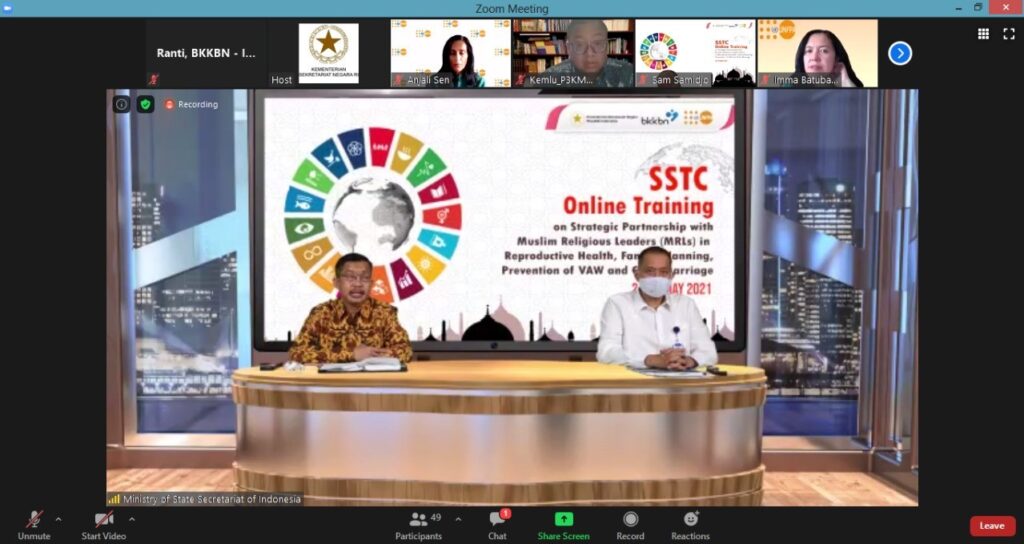
“The support and acknowledgment of Islamic religious leaders generate new ideas regarding the approach of the Family Development, Family Planning, and Population Program (Bangga Kencana Program) in each period of its journey. This attachment to religious leaders has resulted in several important and strategic fatwas so that they could be accepted by the wider community,” said Prof. Rizal Damanik, Ph.D.
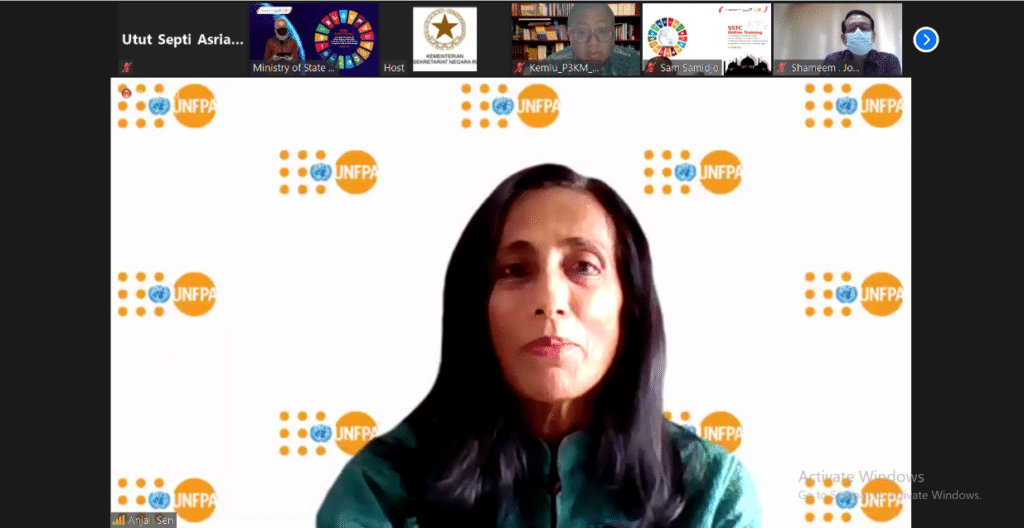
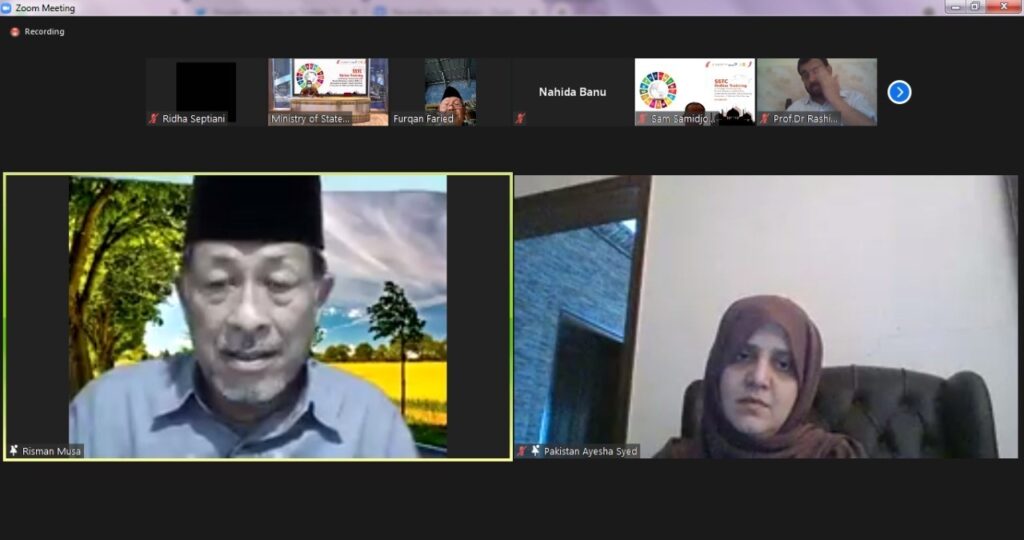
The Muslim Religious Leaders (MRLs) Training Activity was held on 24-25 May 2021 presented competent speakers in their fields including Dr. Nur Rofiah who explained the Islamic Perspective of VAW and Child Marriage, Dr. Furqon La Faried who discussed the Islamic Perspective of Family Planning, Dr. Risman Musa with his presentation entitled Strategies and Approaches of Partnership with MRLs in Family Planning, and Dr. Alissa Wahid who described the Roles of MRLs and Islamic Institutions in Family Planning, Reproductive Health, and Gender Programs.
The training event for Islamic religious leaders was also attended by the Head of the Bureau of Foreign Technical Cooperation, the Ministry of State Secretariat, Samidi Fahrudin, S.IP, M.Pol.Adm., and the UNFPA Representative for Indonesia, Mrs. Anjali Sen. A total of 34 participants from Bangladesh, Nepal, Pakistan, and the Philippines with various backgrounds in the field of Islamic Religion such as academics, government, health workers, educators, and legal experts who actively participated in the Muslim Religious Leaders (MRLs) Training.
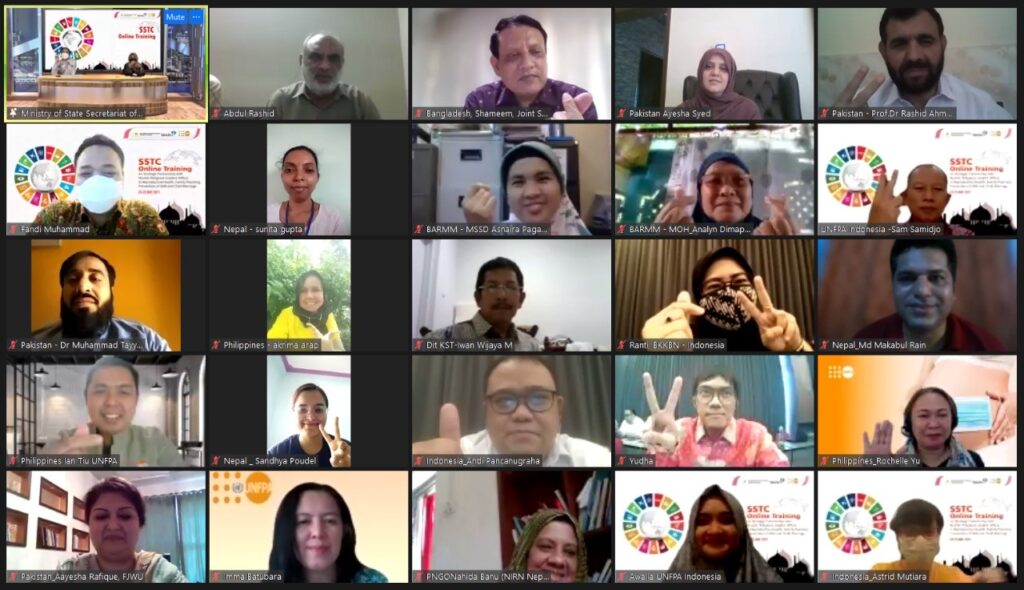
The training of Muslim Religious Leaders (MRLs) was conducted virtually for 2 years in the midst of the Covid-19 pandemic, that is Indonesia’s commitment as a form of free and active participation in Indonesia’s foreign policy. The sustainable development of this training is part of the South-South and Triangular Cooperation (SSTC) framework, which is development cooperation among developing countries in order to achieve mutual independence based on solidarity, equality (mutual opportunity), and mutual benefit. Share information, experiences, and views among developing countries are able to open the insight of each country in creating the newest approaches and appropriate strategies as an effort to increase progress and harmonization, especially in the programs of Reproductive Health, Family Planning, Prevention of Violence Against Women, Child Marriage, and Stunting Prevention which could be implemented in their respective countries to support the health and well-being of people globally.